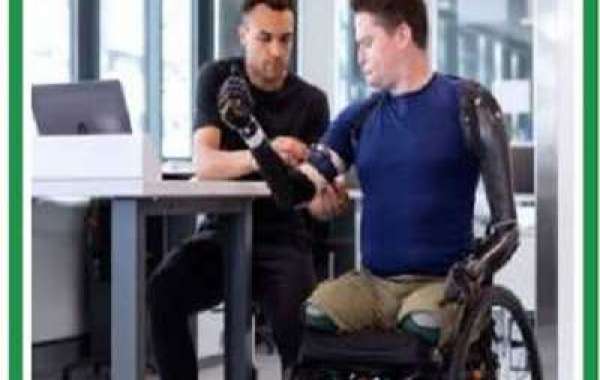The National Disability Insurance Scheme (NDIS) has been instrumental in supporting the development and implementation of adaptive technologies that enhance independence and improve the quality of life for individuals with disabilities. Here are some examples of innovative adaptive technologies funded or supported by the NDIS:
Communication Devices for Non-Verbal Individuals:
- NDIS has supported the provision of communication devices equipped with augmentative and alternative communication (AAC) features.
- These devices enable non-verbal individuals, such as those with severe speech impairments or conditions like ALS, to communicate effectively by selecting symbols, words, or phrases on a screen.
Smart Home Automation:
- NDIS funding has been directed towards implementing smart home technologies that enhance accessibility and independence for people with mobility or cognitive challenges.
- Smart home systems can be customized to control lighting, temperature, security, and other home features through voice commands or accessible interfaces, allowing individuals with disabilities to manage their living spaces more independently.
Wheelchair-Mounted Robotic Arms:
- NDIS has supported the development of wheelchair-mounted robotic arms that provide individuals with limited upper body mobility greater independence in performing daily tasks.
- These robotic arms can be controlled using various input methods, such as joysticks, sip-and-puff devices, or eye-tracking systems, enabling users to reach, grasp, and manipulate objects.
Assistive Apps and Software:
- NDIS has facilitated the development and adoption of assistive apps and software that cater to various disabilities.
- Apps designed for people with visual impairments offer features like text-to-speech, magnification, and object recognition, while those for cognitive disabilities may provide reminders, task prompts, and organization tools.
Customized Prosthetics and Orthotics:
- NDIS funding has supported the creation of personalized and technologically advanced prosthetics and orthotics.
- 3D printing and scanning technologies allow for the development of custom-fitted devices that enhance comfort, functionality, and aesthetics, promoting greater mobility and independence for individuals with limb differences.
Accessible Transportation Solutions:
- NDIS has contributed to the development of adaptive technologies in transportation, making it more accessible for individuals with disabilities.
- This includes innovations such as wheelchair-accessible vehicles, mobility aids for public transportation, and smartphone apps that provide real-time information on accessible routes and transportation options.
Eye-Gaze Technology:
- NDIS-funded eye-gaze technology has been transformative for individuals with severe motor disabilities.
- Eye-tracking devices allow users to control computers, communication devices, and even smart home systems by using their eye movements, providing a crucial means of communication and control for those with limited physical abilities.
These examples illustrate the positive impact of NDIS in fostering innovation and accessibility through adaptive technologies. By supporting the development and adoption of these technologies, NDIS plays a vital role in empowering individuals with disabilities to lead more independent and fulfilling lives.
See more:-
NDIS Disability Support Services Worker
Disability Services Australia, Disability Service Provider, Disability service organization
Disability Support Worker, NDIS Support Services
NDIS and Allied health Service Providers in Perth
Allied Health Services, Assistant in NDIS WA
NDIS Core Support for Social and Community Wellbeing
Specialist Support Coordinator, Coordination by the best NDIS support providers in Western Australia
Assistance With Daily Life Living NDIS
Assistance With Social and Community Participation NDIS, NDIS Service Providers in Western Australia
NDIS Cleaning and Gardening Services
Psychosocial Recovery Coach NDIS
NDIS Service Providers in Perth, Australia
NDIS Support Coordination Team









